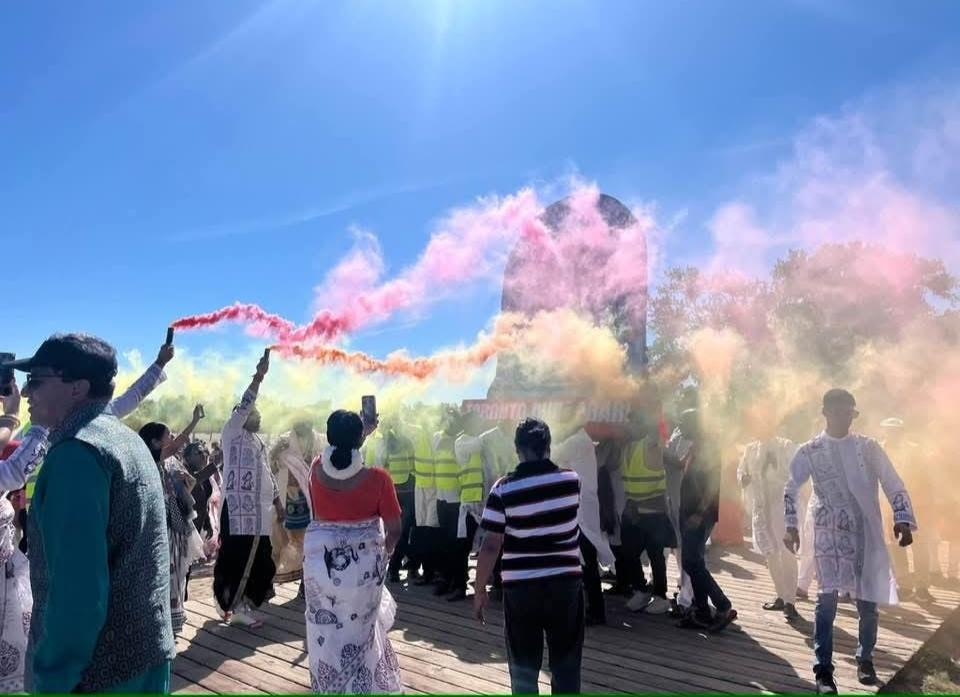Published: 08:56 AM, 04 October 2025
Toronto Durgabari Creates History with First Durga Immersion in Canada

Sangram Datta:
On a cool autumn afternoon by the shores of Lake Ontario, the air was thick with the sound of conch shells and the rhythmic beat of the dhak. Devotees, many with moist eyes, gathered in clusters, hands folded in prayer, voices rising in chants of “Bolo Durga Mai Ki Jai!”
For the first time in history, the Bengali community of Toronto witnessed something that generations of immigrants had only longed for: the immersion of Goddess Durga in Canadian waters.
A Long-Awaited Moment:
Durga Puja in the diaspora has always been marked by a quiet incompleteness. The idols, lovingly crafted and worshipped over five days, would usually be dismantled quietly after the festival—an improvised ending, far from the farewell rituals of Bengal. The emotional crescendo of Bisorjon was missing.
This year, that void was filled. Toronto Durgabari, one of the city’s leading cultural and religious organizations, took the bold step of organizing a full immersion ceremony in Lake Ontario—creating a moment that blended devotion, nostalgia, and cultural pride.
The Heart Behind the Effort:
Such a historic first did not happen by chance. It was the outcome of months of planning, persuasion, and perseverance. At the heart of it stood Ujjal Das, a name spoken with gratitude by fellow organizers and devotees alike. His leadership, coupled with the dedication of countless volunteers, turned what once seemed impossible into reality.
“It wasn’t just about logistics,” one devotee shared. “It was about faith—and the belief that even in a foreign land, our traditions deserve to be lived in full.”
An Ocean of Emotions:
As the idol was carried to the lakeside, chants grew louder. Children, many experiencing their very first immersion, watched in awe as the Goddess was gently lowered into the water. Elderly devotees wiped tears, whispering prayers under their breath.
For many, it was more than ritual—it was a bridge to memory. Memories of the Ganga, of village ponds and rivers back in Bengal, of parents and grandparents who had once stood at the banks and bid the Goddess farewell.
Here, on Canadian soil, that emotion found a new home.
More Than a Ceremony:
The significance of this event extended beyond religion. By immersing the idol in Lake Ontario, Toronto’s Bengali community had made a statement—that culture is not bound by geography. Traditions may travel oceans, but they do not lose their soul.
In that moment, the shores of Toronto felt like the ghats of Kolkata. The lake became the river. The diaspora became one with its roots.
A Beginning, Not an End:
Toronto’s historic immersion has already begun to inspire conversations across North America. Many believe it will pave the way for other Puja committees in the diaspora to embrace immersion in its complete form.
For the global Bengali community, it is more than an event—it is a renewal of faith, identity, and belonging.
As the last echoes of the dhak faded and the waters of Lake Ontario rippled around the departing idol, one truth lingered:
the Goddess may have been immersed, but a new tradition was born.




